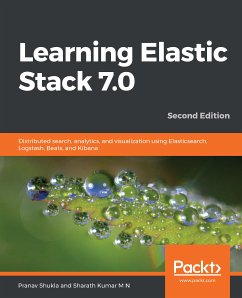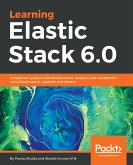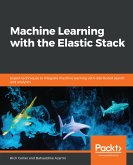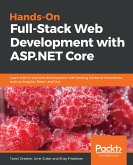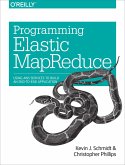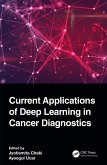Key Features
- Gain access to new features and updates introduced in Elastic Stack 7.0
- Grasp the fundamentals of Elastic Stack including Elasticsearch, Logstash, and Kibana
- Explore useful tips for using Elastic Cloud and deploying Elastic Stack in production environments
Book Description
The Elastic Stack is a powerful combination of tools for techniques such as distributed search, analytics, logging, and visualization of data. Elastic Stack 7.0 encompasses new features and capabilities that will enable you to find unique insights into analytics using these techniques. This book will give you a fundamental understanding of what the stack is all about, and help you use it efficiently to build powerful real-time data processing applications.
The first few sections of the book will help you understand how to set up the stack by installing tools, and exploring their basic configurations. You'll then get up to speed with using Elasticsearch for distributed searching and analytics, Logstash for logging, and Kibana for data visualization. As you work through the book, you will discover the technique of creating custom plugins using Kibana and Beats. This is followed by coverage of the Elastic X-Pack, a useful extension for effective security and monitoring. You'll also find helpful tips on how to use Elastic Cloud and deploy Elastic Stack in production environments.
By the end of this book, you'll be well versed with the fundamental Elastic Stack functionalities and the role of each component in the stack to solve different data processing problems.
What you will learn
- Install and configure an Elasticsearch architecture
- Solve the full-text search problem with Elasticsearch
- Discover powerful analytics capabilities through aggregations using Elasticsearch
- Build a data pipeline to transfer data from a variety of sources into Elasticsearch for analysis
- Create interactive dashboards for effective storytelling with your data using Kibana
- Learn how to secure, monitor and use Elastic Stack's alerting and reporting capabilities
- Take applications to an on-premise or cloud-based production environment with Elastic Stack
Who this book is for
This book is for entry-level data professionals, software engineers, e-commerce developers, and full-stack developers who want to learn about Elastic Stack and how the real-time processing and search engine works for business analytics and enterprise search applications. Previous experience with Elastic Stack is not required, however knowledge of data warehousing and database concepts will be helpful.
Dieser Download kann aus rechtlichen Gründen nur mit Rechnungsadresse in A, B, BG, CY, CZ, D, DK, EW, E, FIN, F, GR, HR, H, IRL, I, LT, L, LR, M, NL, PL, P, R, S, SLO, SK ausgeliefert werden.

